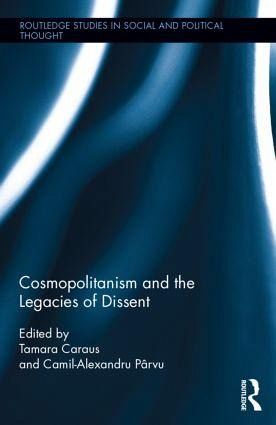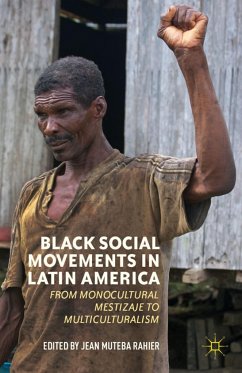
Cosmopolitanism and the Legacies of Dissent
Versandkostenfrei!
Versandfertig in über 4 Wochen
116,99 €
inkl. MwSt.

PAYBACK Punkte
58 °P sammeln!
The core idea shared by all cosmopolitan views is that all human beings belong to a single community and the ultimate units of moral concern are individual human beings, not states or particular forms of human associations. Nevertheless, the attempts to ground a political theory on overarching universal principles is in contradiction with the plurality of social, cultural, political, religious interpretative standpoints in the contemporary world. Is dissent cosmopolitan? Is there a legacy of dissent for a theory of cosmopolitanism? This book is a comparative, historical analysis of dissident t...
The core idea shared by all cosmopolitan views is that all human beings belong to a single community and the ultimate units of moral concern are individual human beings, not states or particular forms of human associations. Nevertheless, the attempts to ground a political theory on overarching universal principles is in contradiction with the plurality of social, cultural, political, religious interpretative standpoints in the contemporary world. Is dissent cosmopolitan? Is there a legacy of dissent for a theory of cosmopolitanism? This book is a comparative, historical analysis of dissident thought and practice for contemporary debates on cosmopolitanism. Divided into two parts, the editors and contributors explore the contribution of 'paradigmatic' dissidents like Gandhi, Martin Luther King, Havel, Sakharov, Mandela, Liu Xiaobo, Aung San Suu Kyi towards a post-universalist cosmopolitan theory. Part Two examines the inherent cosmopolitanism of the seemingly 'peripheral' dissent of contemporary forms of protests, resistance, direct action like NO TAV movement and Occupy Wall Street. A timely book which allows for a much needed new engagement in contemporary debates of cosmopolitanism, we learn how practical resistance to totalizing/hegemonic claims is generated, and how dissident thinking might contribute to new, enriched ways of conceiving the non-totalizing foundations of cosmopolitanism. An innovative look at what lessons can scholars of cosmopolitanism learn from dissent/dissident movements, and what the role of dissent in cosmopolitan democracy could be.












